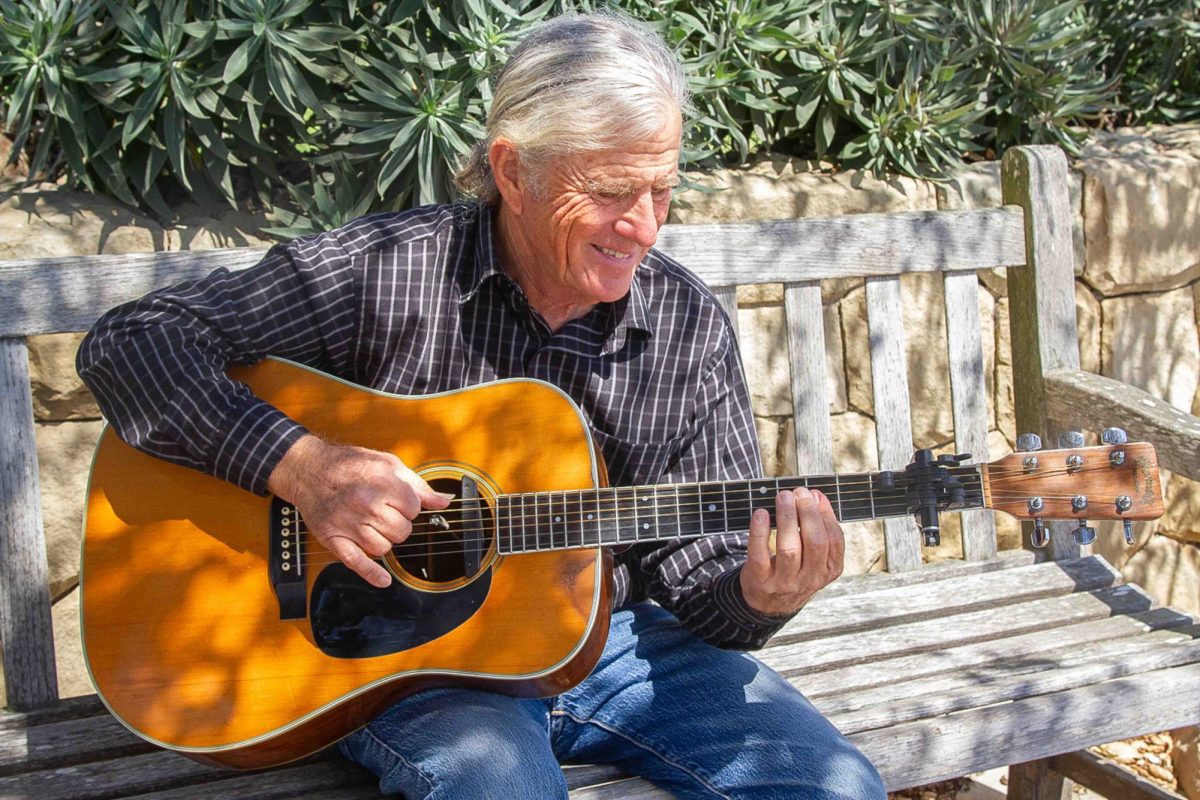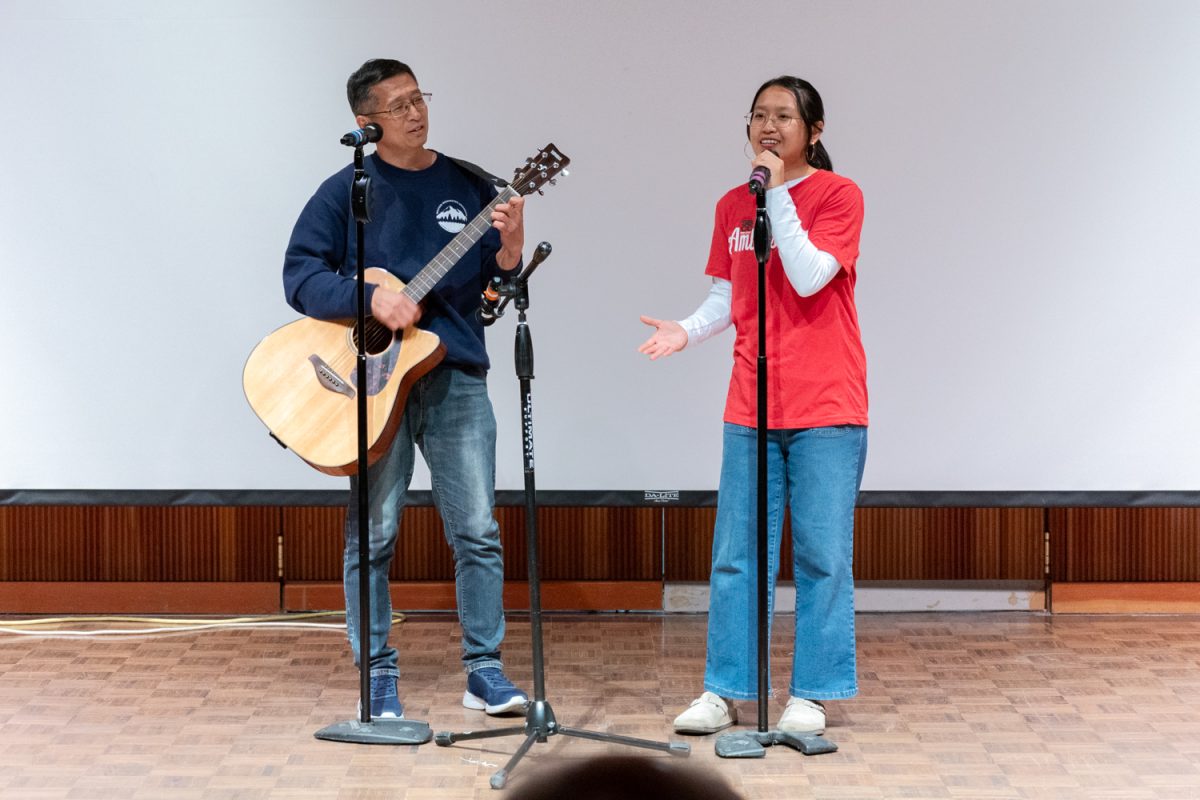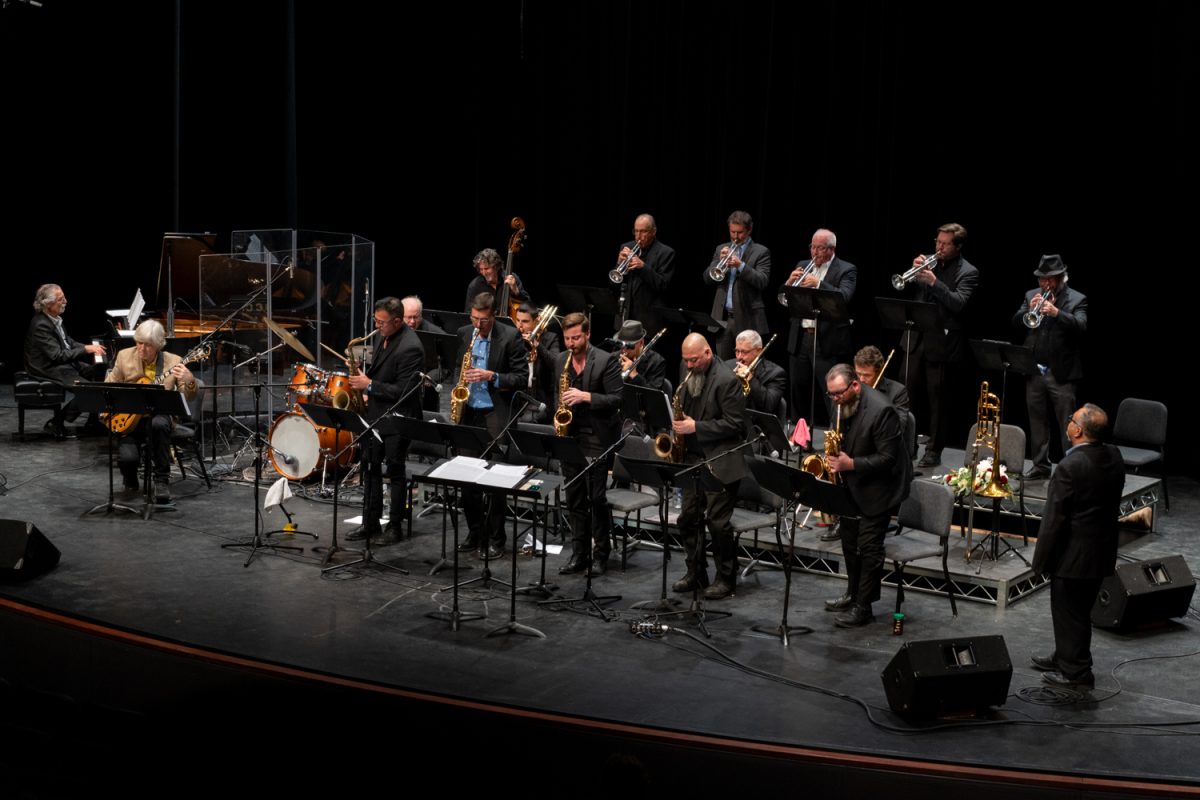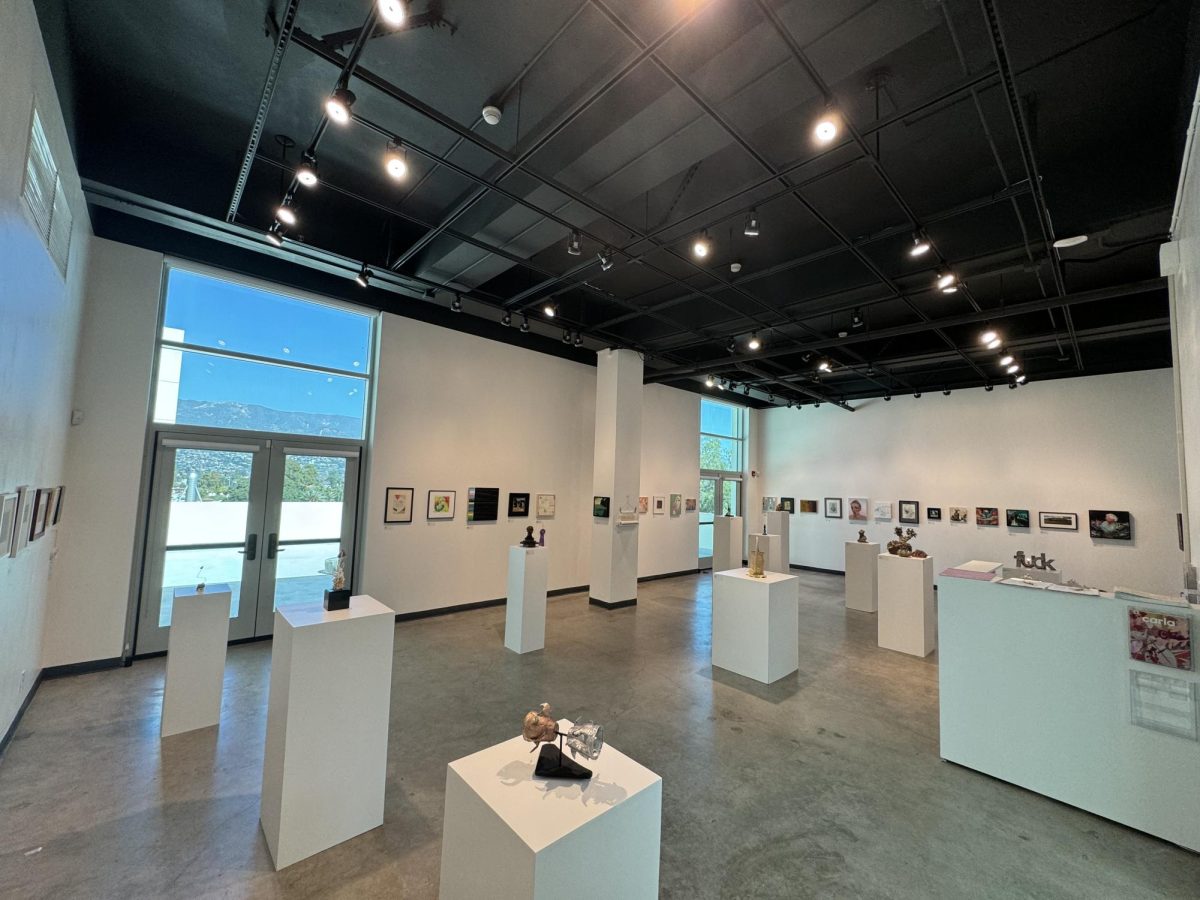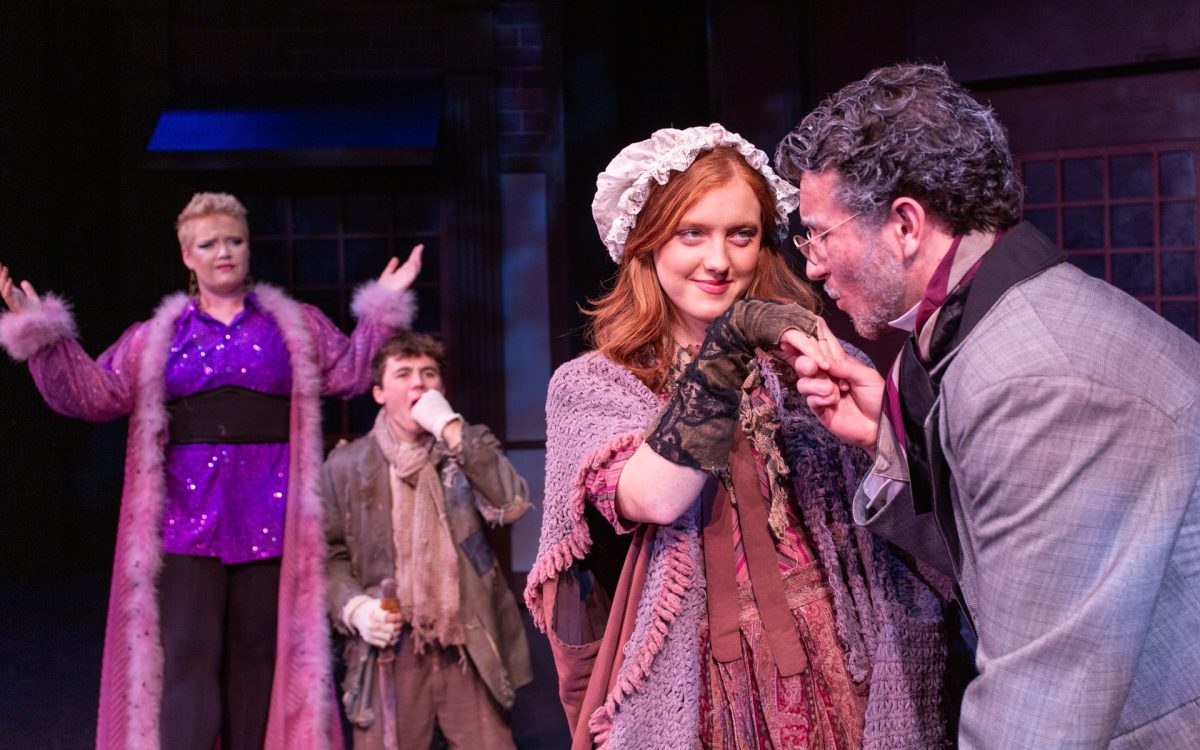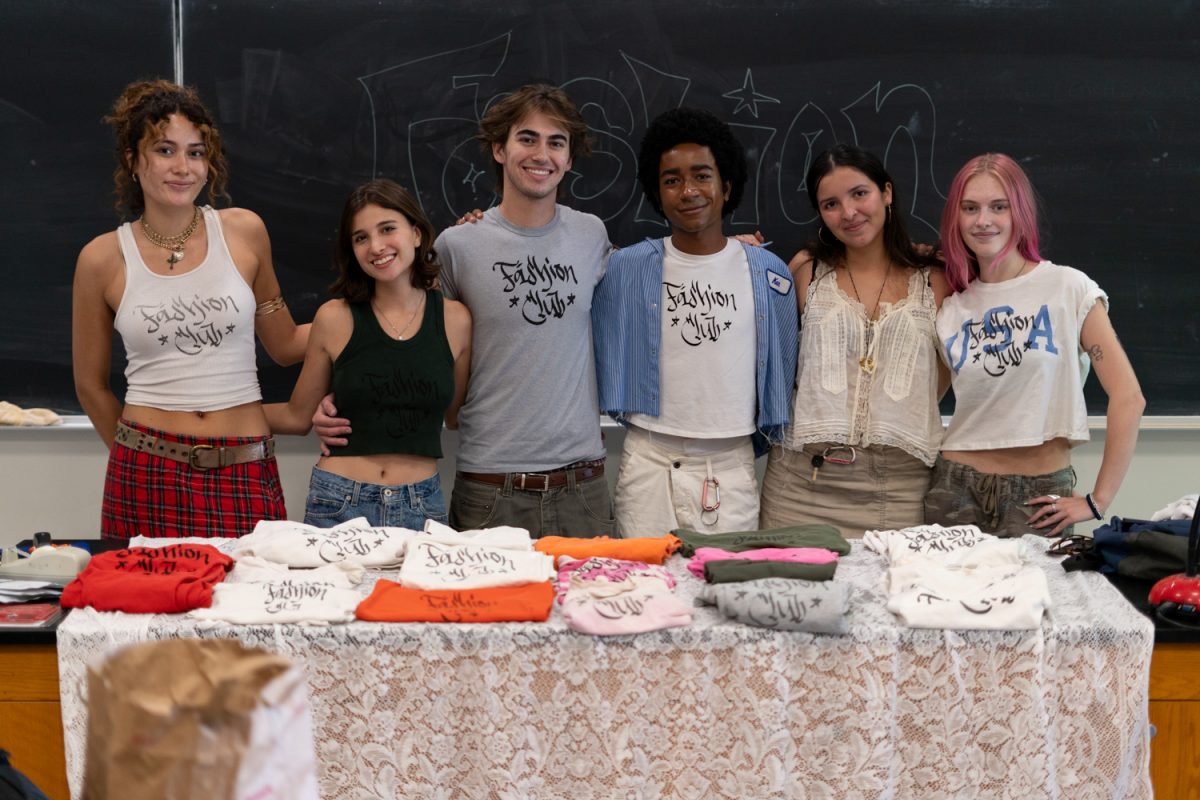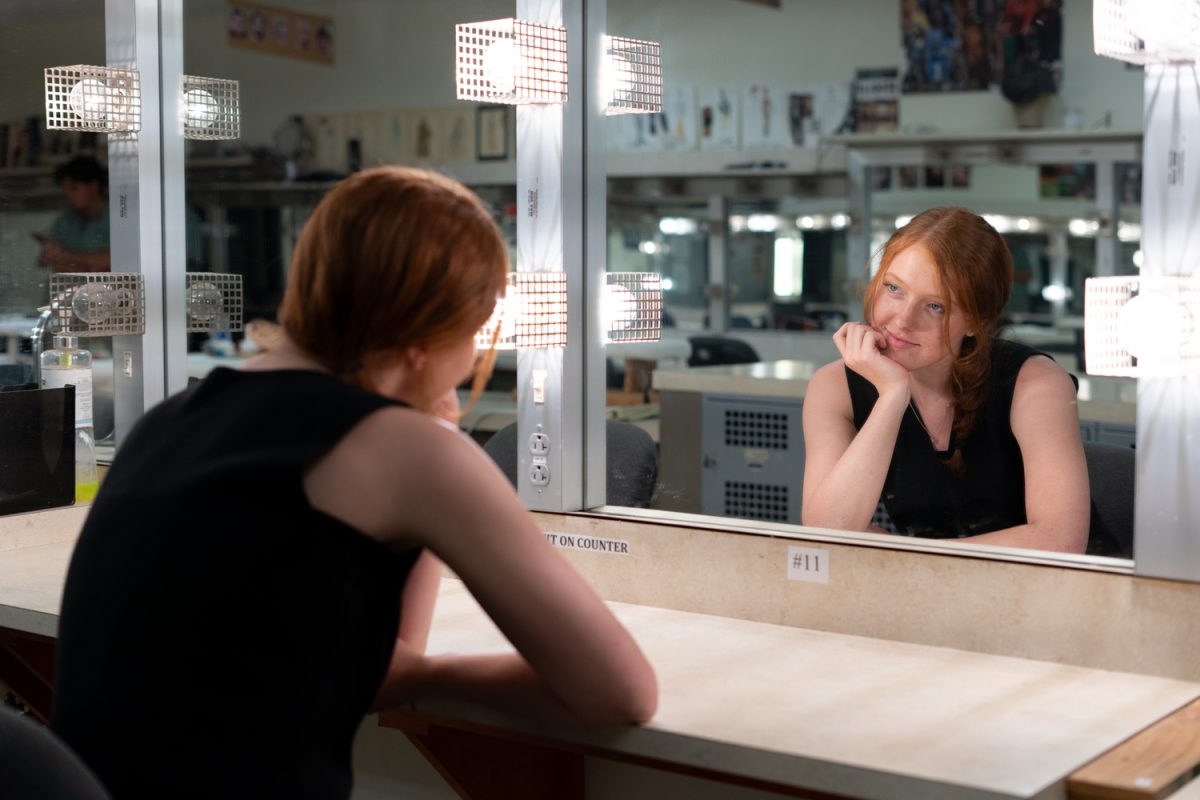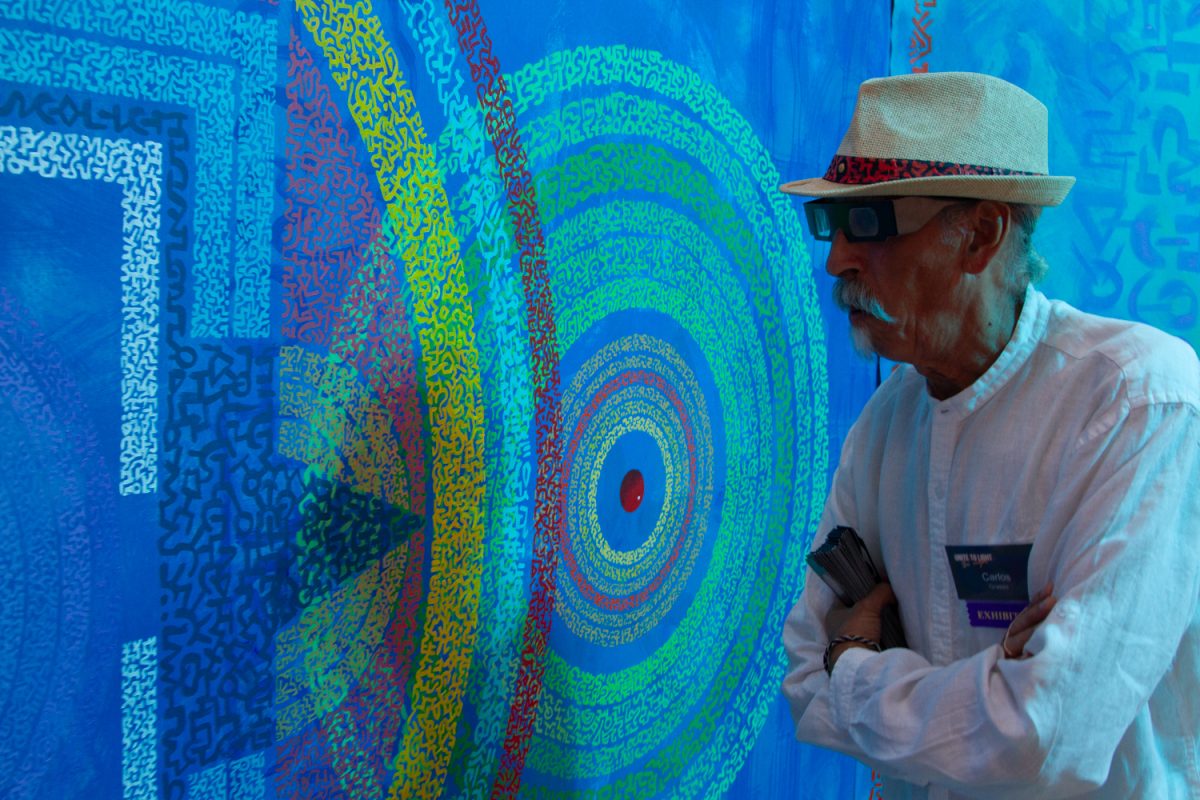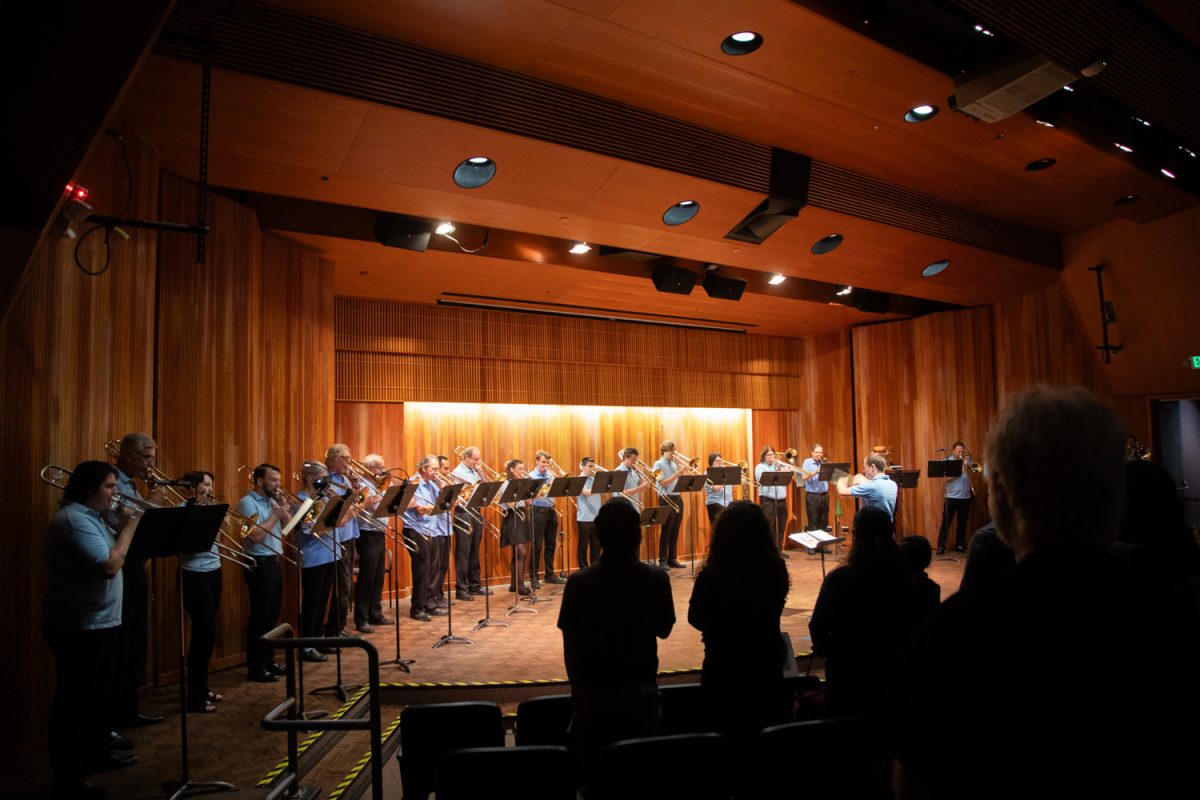Benjamin Ryan’s love for music was sparked at age seven when he began playing the trumpet. Decades later, the 72-year-old musician has fostered his lifelong passion for music into a physical invention.
About 10 years ago, Ryan was inspired to make a change in the guitar world. Since then, he has devoted his life to creating a device that allows users access to over 4,000 chord configurations and about 1,000 more possible sound patterns on the guitar. He named his device, the FreeStyle capo.
“I’ve invented a musical device that goes on the neck of the guitar and changes the length of the strings as opposed to the tension,” Ryan said. “Which enables you to create an open and alternative tuning system.”
A standard capo clamps down across a guitar fingerboard at a particular fret, raising the pitch of all the strings evenly. The Freestyle uses that same engineering without sacrificing all of the strings, it gives users the ability to choose what is and isn’t being manipulated.
The device is fairly simple, but it takes a guitar player to appreciate what it can do to the instrument’s sound. Performing familiar notes that produce a unique harmony provides huge creative possibilities for any artist looking to experiment with music or songwriting.
“I envision a world where guitarists are no longer confined to standard tunings or traditional capo limitations,” Ryan said.
The device has six arms that rotate on an axle, with different options for adjusting to the neck widths of a guitar. Unlike a standard capo which utilizes all strings, each arm can engage or isolate a specific string which allows for those vast possibilities.
Ryan has worked tirelessly alongside a small group of engineers and supporters to bring his invention to life. After years of work, the first 10 prototypes are being assessed. “They are now being tested on the East and West Coast by seasoned guitarists,” Ryan said. “Basically just seeing how it performs, what they can do, and what their experiences are with it.”
His team of about half a dozen have been doing everything in their power to finish the 50 more prototypes they have lined up. With partners scattered around the U.S., Ryan has been able to network with artists who are eager to get his invention off the ground.
For someone with little experience in owning or even starting a business, Ryan explained how it has been surprisingly difficult. “I didn’t have an engineering degree or any manufacturing background at all,” Ryan said. “I just came in as a guy who had some ideas and loved music.”
In the early 70s, Ryan attended City College as a student, focusing primarily in the music department. “I started playing guitar when I was 12 and I’ve been a musician since,” Ryan said. “Music is a real therapy and creative outlet, it’s the universal language.”
He then continued his education at Antioch University of Santa Barbara before moving to New York and New Orleans to further pursue his musical goals. Throughout his travels, Ryan mentioned how he’s never truly left Santa Barbara and it has always been his home.
Despite being fueled by years of passion, the decade-long process of inventing a unique device has been demanding. “Outside sources and funding have made this a slow and constant challenge. An everyday uphill battle,” Ryan said. “But this has been a labor of love and a vision, and I’ve got to be persistent. There’s something important to do and I need to sacrifice to do it.”
Ryan mentions how the biggest struggles have been production, awareness, and funding. But with four patents, successful prototypes, generous investors, and an obvious drive, he is extremely confident the device will be available to the public in the next couple of months.
In the hopes of building a community, Ryan has diligently tackled his struggles to bring his idea to life and share it with the world. The goal is ultimately to revolutionize the guitar-playing experience by providing a transformative tool that opens up the realm of musical creativity, expression, and innovation.
“As the CEO and inventor, I’m the one that lives, breathes, and worries about it, it’s my baby,” Ryan said. “I’ve had corporate jobs before but this serves me a purpose and I love my work so much it’s not even work.”


